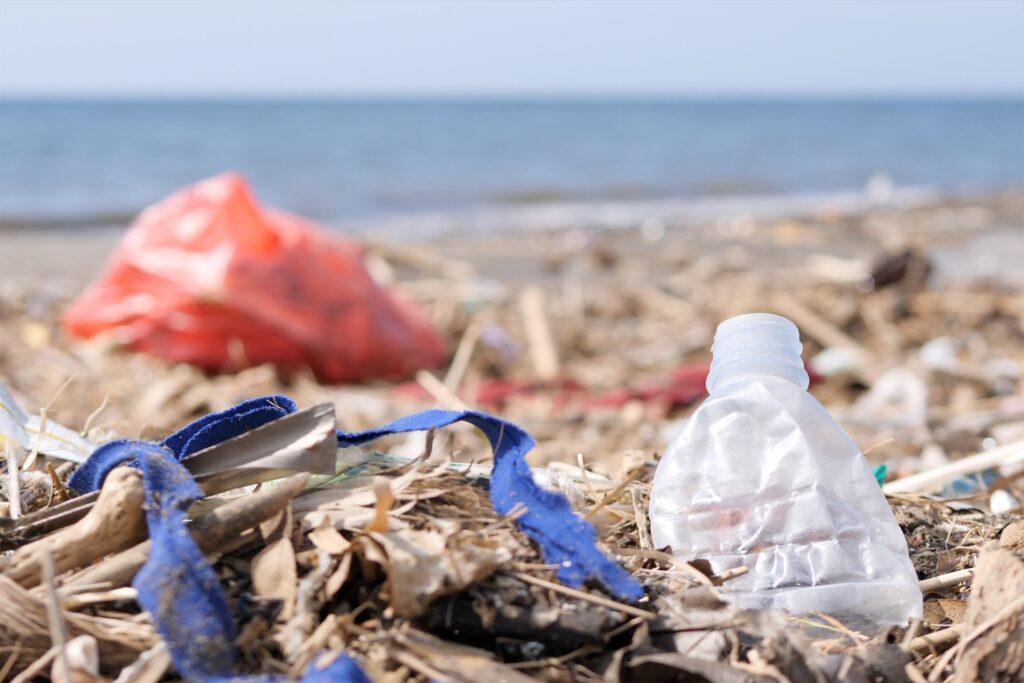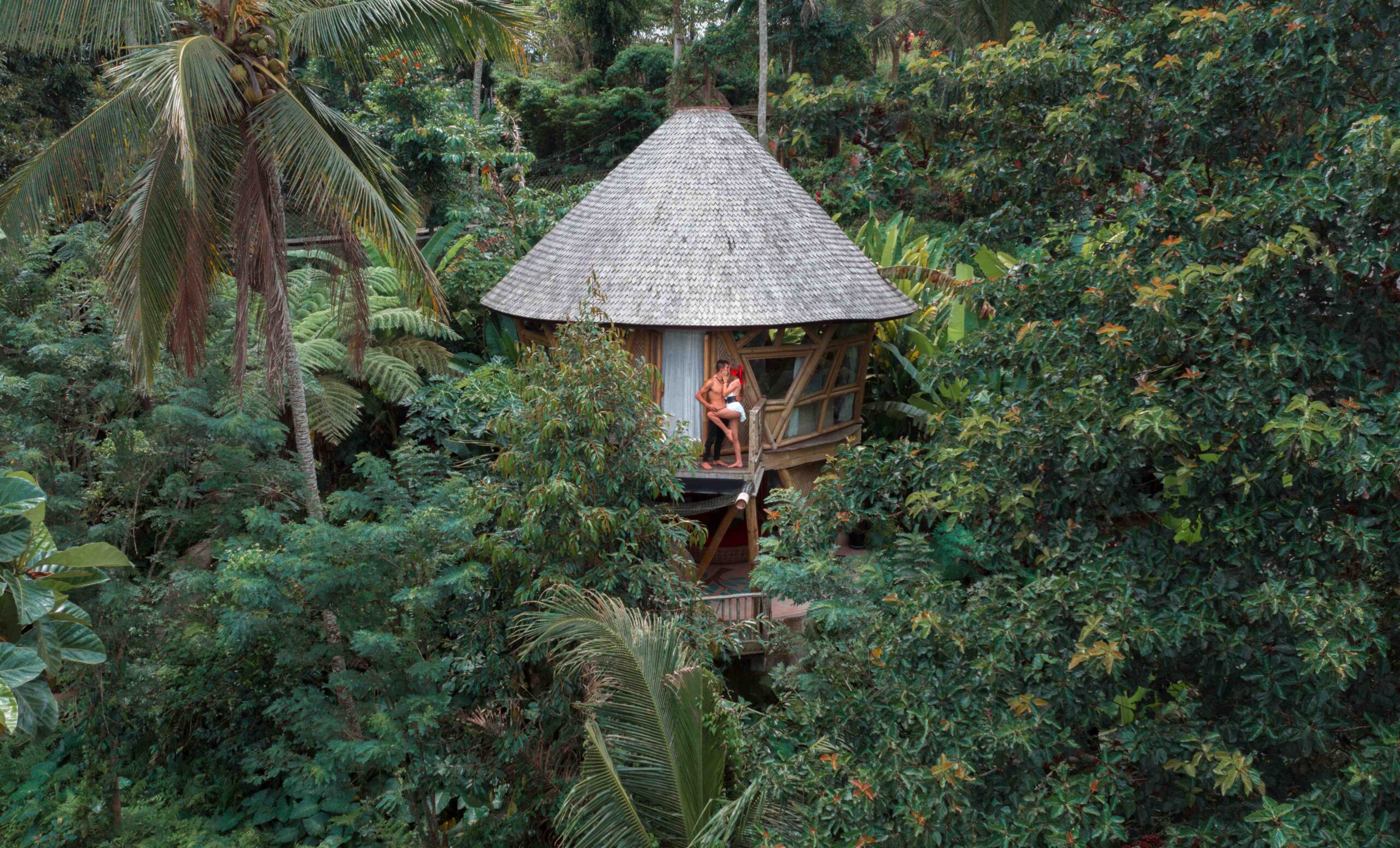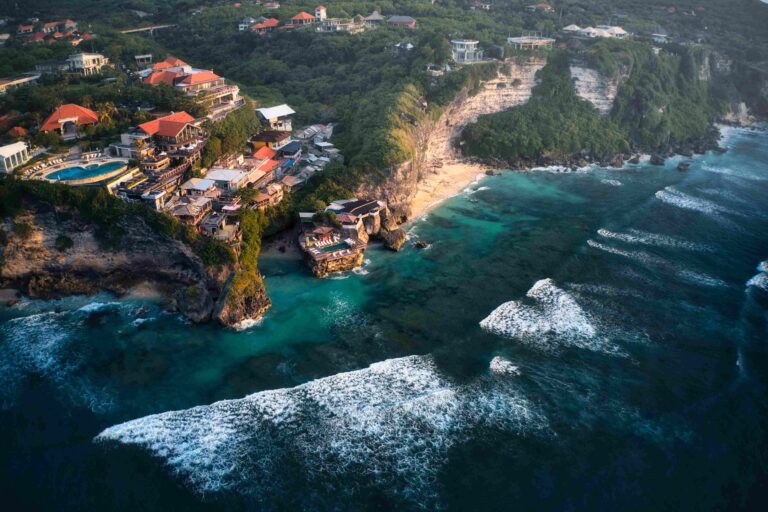There is huge potential in Bali and in Indonesia as a whole for sustainable tourism.
Our guide will take a look at what’s been going to make the island a better place to be and what might happen in the future too.
Nusa Dua – The Original Environmental Plan

Mostly, when people think of sustainability, they think of the demand on the environment and this is a huge issue far beyond banning the use of single-use plastics, sadly.
It might be hard to believe but, the government always understood the risks of mass tourism on the island and took steps to mitigate it from the beginning.
The idea was to create a single area of high-value resorts that would attract all the island’s tourists.
That was Nusa Dua. Unfortunately, this plan turned out to have serious limitations.
Firstly, the area wasn’t big enough to keep up with demand. Secondly, it meant that many parts of the island were being denied revenue.
Thirdly, many tourists want to see the rice terraces and temples of the land and not just the beaches.
And finally, it made for huge headaches when it came to moving waste and traffic in and out of the area.
So, a few years later, tourism had moved to inhabit other parts of the island and the original eco-friendly plans had been forgotten.
The Current Arrangement – Government, Local Councils, & Tourists

It quickly became obvious that tourism in its current form was not going to be sustainable in Bali.
Millions of arrivals each year, nearly all of them heading to the beach towns of South Bali, were doing untold damage to the nation.
The response to this has been fourfold and while well-intentioned, it’s fair to say, it’s not always been effective either.
- Tourists – most tourists now travel with rather different intentions from the tourists of old. They want environmentally friendly resorts and tours. They care if their tour guide is a local rather than an expat. And so on… This is hugely important because change must be economically led and visitors to Bali are doing their bit to drive change.

- Village Councils – “Banjars” are very powerful in Bali. The village council has a lot of say over everything that goes on within its remit from farming activities to how best to protect temples and nature in the local area. Nothing gets done in Bali without the permission of the community leaders and the Banjars have begun to explore better ways of promoting sustainability within their own communities.
- Balinese Government/Indonesian Government – things then become a bit more complicated because Bali is essentially under local control but also managed by the Indonesian government and sometimes the two have different priorities. However, it’s fair to say both groups recognize the need for sustainability in travel. They have introduced standards for eco-travel, dropped plans to create a ton of UNESCO sites in Bali (UNESCO status can bring hundreds of thousands of additional visitors to a site each year, and with them, the harm that they bring) and begun to tackle issues with infrastructure on the island too (though this is definitely a work-in-progress and won’t be resolved quickly).
- NGOs (Non-Governmental Organisations)/Charities – locals, tourists and expats alike have begun to volunteer for initiatives with the intent of preserving the destinations that they visit. Everything from Balinese wildlife to local food culture is benefiting from these efforts.
All of these efforts are ongoing and as the community learns from its successes and failures, we expect things to get better over time too.
How Can Tourists Be More Sustainable?
There are actions you can take to help when you visit Indonesia and Bali:

- Book eco-conscious accommodations – if you start with sustainability in mind, you’re going to find it very easy to find pleasant places to stay here with minimal environmental impact
- Consider carbon offsets for your flights – we know that this is an imperfect system, but it’s better than nothing. Most airlines have an option to pay a small fee for carbon offsets.

- Pack reusable items where possible – use boxes, bags, containers, etc. that can go home with you rather than needing to be thrown away. In particular, bring a reusable water bottle for your drinks.
- Pack light – the more luggage that you bring, the more fuel that they burn on the plane. Go through everything you intend to bring and ask if you really will use it, if the answer is “no”, leave it behind.
Watch your energy and water consumption in the hotel – the less you consume, the kinder you are to the world around you.
A Quick Note On Ethical And Responsible Travel

We should also note that responsible and sustainable are not the same thing and that there is an ethical component of travel to Bali.
In recent years, the locals have been very upset about the actions of some tourists in a welcoming country with some strong local traditions.
You can do your part to be ethical by:

- Shopping with locally owned businesses and stay at locally owned accommodation – try to avoid big international brands and opt for Balinese brands, instead.
- Dress modestly where appropriate – the temples and sacred sites of Bali are important to people here.
- Take a trip to less visited parts of the island – Ubud is not the only place with rice fields, Kuta is not the only place with beaches, etc.

- Learn about local traditions and customs – the more informed that you are, the easier it is to explore Bali in harmony with nature and the people who call this beautiful place home. A little respect can go a long way. For example, did you know that they celebrate Chinese New Year in Bali?
FAQs
Does Bali Have Sustainable Tourism?
Bali is certainly making strides when it comes to sustainability. There is a new tourism scheme that awards CHSE certification to individual venues.
This means that the venue is clean, healthy, safe and environmentally sustainable.
Is Bali Ethical To Visit?
Yes, in fact, the local culture and the national economy very much depend on tourism to thrive. During the pandemic when tourism stopped, the island fell into very tough times, indeed.
While, of course, you should consider things like your carbon footprint as part of any sustainable tourism plan, it’s important to remember that people are at the heart of tourism and everyone from the local farmers to the restaurant owners to the storekeepers in Bali is dependent on tourism.
How Do I Travel To Bali Responsibly?
That’s very much down to you. A lot depends on what you feel is “responsible”, does that mean eco-friendly or volunteering to help with animal welfare or sustain coral reefs?
Or are you concerned with other aspects of travel such as public displays of affection in a more conservative corner of the world?
There is no set definition of “responsible” when it comes to travel, it’s for you to decide where your boundaries lie and then to make decisions that support these boundaries.
What Is The Biggest Problem Associated With Tourism In Bali?
The biggest challenge for tourism in Bali is ensuring that when people visit Bali, they are spread out across the island.
Most people come to spend time on the pristine beaches of the South of the island and that puts a lot of pressure on the infrastructure there.
The other most popular destination is Ubud which is famous for its cultural heritage and local artisans, local markets and the opportunities for visiting sacred sites. However, once again, this puts a lot of pressure on the infrastructure in that area.
Places like Sidemen, Munduk Village, Bedegul, Singaraja, Lovina, Amed, etc. on the other hand still offer fabulous beaches and places to enjoy and are much less visited.
Sustainable tourism on the island begins with helping visitors to discover the rest of the island.
That doesn’t mean that you shouldn’t visit the beach towns of Kuta, Canggu, Seminyak, etc. or the monkey forest of Ubud, but that you should also see what else Bali has to offer.
Final Thoughts On Sustainable Tourism In Bali
Responsible travel doesn’t have to be a buzzword, you can visit Bali and ensure that you act ethically and sustainably.
There are plenty of eco-friendly tourist activities to enjoy and various opportunities to engage with the culture and environment in a constructive fashion.
You can also choose accommodation built with eco-consciousness in mind and even try some volunteering if you want to give back during your visit.












